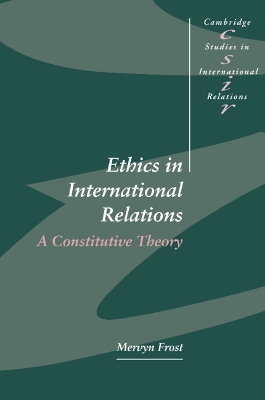Cambridge Studies in International Relations
2 total works
Practice Theory and International Relations
by Silviya Lechner and Mervyn Frost
Published 10 August 2018
Are social practices actions, or institutional frameworks of interaction structured by common rules? How do social practices such as signing a cheque differ from international practices such as signing a peace treaty? Traversing the fields of international relations (IR) and philosophy, this book defends an institutionalist conception of practices as part of a general practice theory indebted to Oakeshott, Wittgenstein and Hegel. The proposed practice theory has two core aspects: practice internalism and normative descriptivism. In developing a philosophical analysis of social practices that has a special relevance for international relations, Silviya Lechner and Mervyn Frost depart from Pierre Bourdieu's sociology of practice that dominates the current 'practice turn' in IR. The authors show that the contemporary global realm is constituted by two distinct macro practices - the practice of sovereign states and that of global rights.
Most questions commonly asked about international politics are ethical ones. Should the international community intervene in Bosnia? What do we owe the starving in Somalia? What should be done about the genocide in Rwanda? Yet, Mervyn Frost argues, ethics is accorded a marginal position within the academic study of international relations. In this book he examines the reasons given for this, and finds that they do not stand up to scrutiny. He goes on to evaluate those ethical theories which do exist within the discipline - order based theories, utilitarian theories, and rights based theories - and finds them unconvincing. He elaborates his own ethical theory, constitutive theory, which is derived from Hegel, and highlights the way in which we constitute one another as moral beings through a process of reciprocal recognition within a hierarchy of institutions which include the family, civil society, the state, and the society of states.

